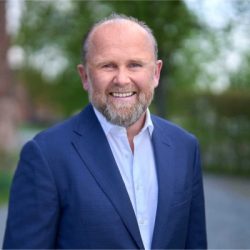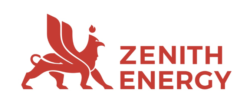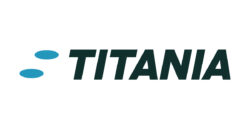2024-04-12

CEO Henrik Badin
"We are a company with a strong track record in delivering technology. We have a strong foothold in markets that demonstrates our ability to deliver technology over time."
For those who have not heard of Vow, can you speak about your business, what you do, and what markets you’re active in?
We are a technology provider with a long legacy business within the cruise industry. That business area dates back to 1993, when we started delivering waste management systems onboard cruise ships, at the time to Carnival and Disney cruise lines. We have over the years increased our technology portfolio within the maritime market to now process all kinds of waste coming from the hotel business of the cruise ships, including garbage and food waste. In 2001 we also introduced wastewater purification on top of this. Today we have deployed our technology on almost a third of the global cruise industry fleet. We have in recent years taken a market leading position, and looking at our current orderbook we have a market penetration of large cruise ships of about 70%. We have achieved this by working closely with ship owners who place orders on shipyards. We have built our business on the foundation of the cruise industry, and we have taken that position due to the uniqueness of our technology offering, where we have always been innovative. We are also located in the U.S, in Fort Lauderdale, which is the cruise ship capital of the world, where we work closely with the ship owners. With that foundation we have developed new technology in the space that makes us relevant in new markets, especially with technologies that can create value through converting waste into, for example, clean or renewable energy. With that we saw that we could develop the business in other industry verticals because our technology was relevant. To speed up the process we did a few acquisitions to get more technology and access to markets. Today we have a much larger window of opportunities, working with potential processes and markets that can accelerate the growth in the coming years.
Today we have three different segments which are Maritime, Industrial Solutions and Aftersales. Industrial solutions is the land based segment which includes projects where we are delivering technologies to clients within the metallurgical space, which is any kind of industrial process of metals that require producing agents that are fossil based. With our technology we can convert organic feedstocks to produce biocarbon that replaces fossil carbon. We also did a spin-off in 2021, where we demerged Vow Green Metals, a company that builds factories to produce biocarbon to the metallurgical industry, where Vow is the technology provider of pyrolysis. We have an ongoing project portfolio in that space today of around 400 MNOK, a substantial amount of the segment. Within this segment we also address the heat demanding industries where we deliver furnaces and high temperature ovens with hybrid solutions or fully electrified, which means that we are able to help clients to switch from typical fossil gas heated ovens to electrically heated ovens. We also have some circular economy projects within using pyrolysis as the main technology for end of life tires. We are pursuing multiple industrial applications where we can convert feedstock, whether it’s a renewable resource, forestry residues or plastic waste, the technology is applicable for many industry verticals. For example, last year we announced a cooperation with Circon Energy, a Houston based company that builds large wastewater facilities, where they convert municipal sewage sludge into renewable energy. Circon have a power purchase agreement with the Dominican Republic to build facilities where they use Vow technology. So, the window of opportunity is large and its starting to materialize with contracts within the land-based segment.
Can you elaborate a bit about your solutions and how they hold up against competitors with similar products?
I think the foothold we have in the industry is partly due to the high threshold to enter the industry. This is in part due to international maritime regulation and that you need to have ambassadors all the way from chief engineers and crew onboard to the land-based side. It’s a space where there have been few competitors, and we are the market leader as of today. On one side we have been able to demonstrate that we are in compliance with international regulation, on the other hand we also have close relationships with shipowners. In the shipyards, you compete on price, but as long as you have support from the shipowners they don’t care about having to pay more for Vow equipment as the initial investment is so large. It’s a capital-intensive industry where it’s more important that you are in compliance with regulations rather than price.
In other spaces we see a different competitive landscape, but we have decided to be first mover ourselves, which we did in the metallurgical industry. We saw that this was all about scale and speed, so we decided to establish, and then spin off Vow Green Metals. We believe that this is a space that is all about delivering technology to those that have the capabilities to raise capital to build factories. There is a huge demand for biocoke that replaces fossil coke and there is very limited supply of biocarbon, so the question is how fast you can build the factories. We don’t see competition restricting market access, it’s more about how many companies that have the capacity to build their own factories, which is why we took the initiative to establish Vow Green Metals. There is a bit more competition within the end-of-life tires, but we have been working within this market for nine years and we have established partners.
How long does a project typically last?
It depends on the contract, they all tie capital, but it varies how much. If you look at a normal cruise contract, from the date of signing to the time where we have delivered everything, it is around 2-3 years and when the ship leaves the shipyard, we start generating aftersales on it. Smaller land-based projects could span from a year to a year and a half. Normally, for land-based we get prepayments, often making it cash neutral or positive. Cruise ships contracts ties more capital, where we receive most payments when we have delivered equipment, the working capital build up lasts for around 6-8 months.
What is the company’s plan to get back to profitability?
We have been able to adjust and provide much more predictability going forward. We have increased our price level, and we’ve also been able to renegotiate with the supply chain to mitigate what happened in 2023. We have also guided that in the end of 2024, we will be back to a 15% EBITDA margin.
How is the company securing international contracts?
Most of our contracts, around 95%, are international. Within the cruise ship we have a long history, we are on the makers list and doing business with the ship owners and shipyards. We know the owners who are ordering and the yards that are producing, so we can position ourselves to capture this. Land-based is another story where you are in another decision process, where the client needs a permit to build the factory to convert end of life tires into renewable fuels. This means they need to engage us early in a front-end engineering contract. We get paid to provide a tender where we work with them so they can get enough information to apply for a permit and make a final investment decision.
How do expect the backlog to develop in 2024?
We had significant growth in the last year where we delivered around 1 BnNOK in revenue. We want to continue growing, so some of the roughly 1.1 BnNOK order backlog will be realized this year, but we also need to enter new contracts.
Which segment or market are you most excited about in the coming years?
I am excited about the markets we are developing. I am also excited that the cruise ship industry is coming back after the pandemic. There is a very good momentum and we are implementing new technologies where we have received contracts, demonstrating a demand for this new technology. I am also excited about the metallurgical space, not only supplying technology to Vow Green Metal but also other industry players, we see great promise in the end of life tires where I hope to announce some exciting contracts soon. U.S is an interesting market as there is a lot of government subsidy for renewable energy initiatives, when Circon Energy is able to move forward that could be a massive portfolio of contracts.
Could you give three reasons as to why Vow is a good investment today?
- The first reason is that we are a company with a strong track record in delivering technology. We have a strong foothold in markets that demonstrates our ability to deliver technology over time.
- The second reason is that we have made large investments in technology that has made us relevant for several markets.
- The third reason is that we have a great scalability with our technology that fits large industrial needs.




